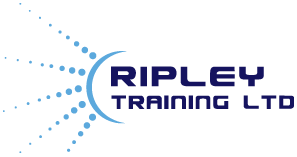Everyone tasked with speaking in public has the same choice to make: to make the speech with or without notes. The opinion of some people is that using notes is unprofessional. But is it?
In 1914 a young Winston Churchill stood to speak in the House of Commons. Churchill had memorised his speech, but part-way through he lost his way. He repeated his previous sentence, hoping that would jog his memory. It didn’t. Churchill had to sit down, humiliated. He would go on to make many impressive speeches, all of them with the aid of notes.
So if using notes was good enough for Winston Churchill, it should be fine for all of us to use them. Right?
According to professional keynote speaker Bob Ferguson, a three-time Toastmasters champion, the answer is yes.
And no.
“It all depends on WHY you are giving the speech in the first place,” says Bob. “At one end of the public speaking spectrum there are Professional Speakers. Speaking is their job. At the other end there are business speakers. Speaking is part of their job.”
Bob identifies two major differences between a Professional Speaker and a Business Speaker:
1. Content
Professional Speakers may have three, perhaps four speeches. Some have just one. The Professional Speaker will customise a speech from their arsenal for each engagement, but essentially they are repeating the same performance again and again.
Business Speakers stand up in front of audiences in a variety of circumstances, perhaps covering project updates or sales presentations or team briefings. They’re dealing with new material almost every time they make a presentation.
2. Preparation Time
When Professional Speakers develop their keynote speech(es) they spend a lot of time crafting both the content and the performance. They allow themselves time for research, rehearsal and trial runs. They’ll organise feedback from friendly audiences and hone their product.
That’s not the world the Business Speaker inhabits. Pretty much each speech focuses on new subject matter and will often be delivered at short notice.
Professional Speakers and Business Speakers may seem to be doing the same thing, but only in the way that Usain Bolt and Mo Farah seem to be doing the same thing.
For a Business Speaker, using notes makes sense. Their audience isn’t there to be dazzled by performance, they’re there for information. And if notes help the Business Speaker deliver that information effectively, what does it matter?
But that doesn’t mean we shouldn’t think about how we use notes.
Bob Ferguson says, “When I have to use notes I either use small flesh-pink card (so the audience doesn’t see the flash of white on my hand as it moves) or I use a speech map (rather like a mind map) which I put on a music stand set at under waist height. That way I can see my aide memoir clearly but it doesn’t interfere with my engagement or eye contact with the audience. I also put small props on my music stand so I’m not retreating to the back corners of the stage, where the lecterns normally are, to retrieve my visual aids.”
For those still feeling a little sniffy about the use of notes, consider this: What do these iconic speeches have in common?
• John F Kennedy’s Man to the Moon speech
• Martin Luther King’s I have a dream speech
• Winston Churchill’s We will fight them on the beaches speech
They were all made behind a lectern … with notes!
If you would like help in becoming more confident with your speeches then we have courses planned across the UK and we can also come to your business.


